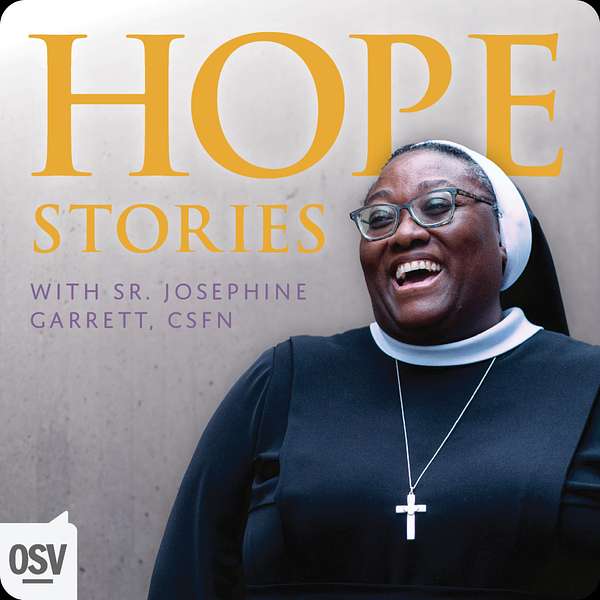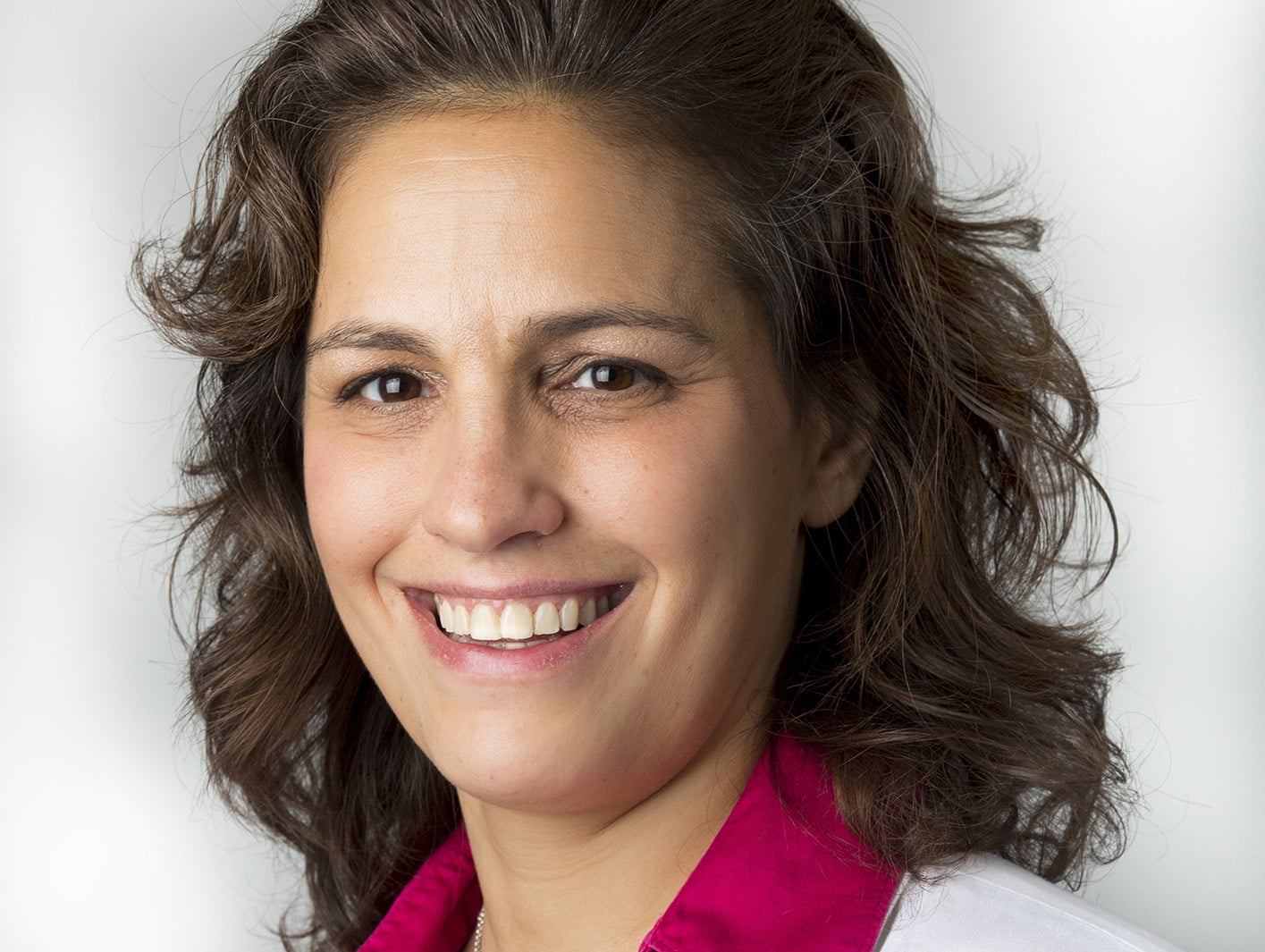A bank executive who swapped her business formal for a black and white habit, Sister Josephine Garrett, CSFN, is best known as a popular speaker and author. Season 1 of her OSV podcast, “Hope Stories,” was a smash hit (as was the marvelous companion book, “HOPE: An Invitation“). Leaning into her expertise as a therapist, Sister Josephine has picked her microphone back up to share heart-wrenching and inspiring stories at the intersection of faith and mental health.
This interview has been edited for length and clarity.
Our Sunday Visitor: Sister Josephine, you are back with Season 2 of “Hope Stories.” Before we jump into the new season, can you tell us a little bit about how Season 1 was received?
Sister Josephine: The first season was received really well. Our project manager and producer told me we started out and remained near the top 5% of all Buzzsprout podcasts. Where I live in Tyler, Texas, people who I didn’t know approached me and said how much they appreciated the podcast. I had one man at Mass come up to me and say, “I’m not a Black Catholic, but I love that podcast.” It was received beautifully.
It was good for me too, just to keep sinking more deeply into the dimension of gift within the Black Catholic Church. On a personal level, it was very fulfilling. Whenever I thought about having a podcast, the idea of just putting my personal voice out in the world more was not appealing to me. However, making space for people’s stories to be heard at a national level, stories that might not have been heard otherwise, that I love. For people to hear my uncle share about his prayer life, my aunt’s faith journey, and people like Jennifer Monette from Louisiana with her rich devotion to the Blessed Virgin, and Deacon Michael Parker and JaVaunda Parker — that I’ve absolutely loved.
Our Sunday Visitor: You’ve got a different focus, a different topic in Season 2. In some ways, it’s an all-new podcast. What will you be leading us through in the new episodes?
Sister Josephine: We sat down and knew that, for the second season, we would look for more stories to make space for and elevate on a different topic. Our producer thought of mental health, inspired by the U.S. Conference of Catholic Bishops’ focus on mental health last year. We prayed about it and decided to go diagnosis by diagnosis — borderline personality disorder, bipolar disorder, trauma. People often talk about mental health generally, but specific diagnoses can be isolating. Bringing Catholics to share their journeys with specific diagnoses and integrating their faith is something I was excited about. As a clinician, I felt able to hold the space for these vulnerable conversations.

Our Sunday Visitor: Could you say a few words about your own journey to become a clinician? Previously, you managed hundreds of employees at Bank of America, which is quite different from mental health.
Sister Josephine: As an operations manager, I had team leaders reporting to me, and a big part of my role was helping to develop those leaders. Initially, I fell into the trap of imposing myself on them, thinking if they became like me, they’d be successful. I learned to look at them and see the kind of leaders God was calling them to be and to accompany them in that journey.
In the novitiate, discerning what kind of education and ministry I wanted, I was working in our psychology department and felt attracted to the idea of counseling. I realized what I loved doing with those leaders was what a counselor does — seeing what God wants to accomplish in a person and accompanying them toward that. My mentors affirmed this path, and in school, I found joy in sitting with one person, helping them see who they want to be and walking alongside them.
Our Sunday Visitor: Surely you meet some Catholics who are suspicious of mental health professionals. What do you have to say about the growing need for mental health awareness today?
Sister Josephine: I appreciate that suspicion. From a secular perspective, the mental health field has failed in many ways. But as Catholics, our proper father of mental health is Pope St. John Paul II. He integrated the psychological sciences into our Christian anthropological view of the human person. Dismissing mental health awareness as an exception to viewing the person in a faith dimension is faulty and arrogant. It presumes to limit God’s transformative work. Proper mental health, aligned with Catholic views of dignity and freedom, is very Catholic when at its best. Ignoring it would handicap people from becoming who God wants them to be.
Our Sunday Visitor: What is the goal of this next season of “Hope Stories”? What do you want people to find in this season?
Sister Josephine: Like Season 1, I want experiences that seem isolated to be generalized and expanded as gifts to the whole Church. I want people experiencing mental health difficulties and those who love or accompany them to feel integrated into the Body of Christ. To approach these stories with reverence, expecting the resurrection to dawn in those parts of themselves, and await that with joy and hope.
Our Sunday Visitor: Was there an episode that was particularly challenging for you?
Sister Josephine: Multiple episodes were challenging. I recorded the whole season in three or four days and was exhausted but grateful. The episode on personality disorders was particularly convicting. I couldn’t find a guest willing to share their diagnosis openly. Instead, I invited a Catholic clinician specializing in borderline personality disorder. This experience made me reflect on how we treat people with personality disorders and how I, as a clinician, need to contribute more to their healing.
Our Sunday Visitor: Do you have a final word for our readers?
Sister Josephine: There are episodes on adoption and the experience of adult children of divorce. These sensitive family topics require holding stories as sacred mysteries. I encourage listeners to approach these stories with reverence, as something holy, to see what God has for them in these experiences.







